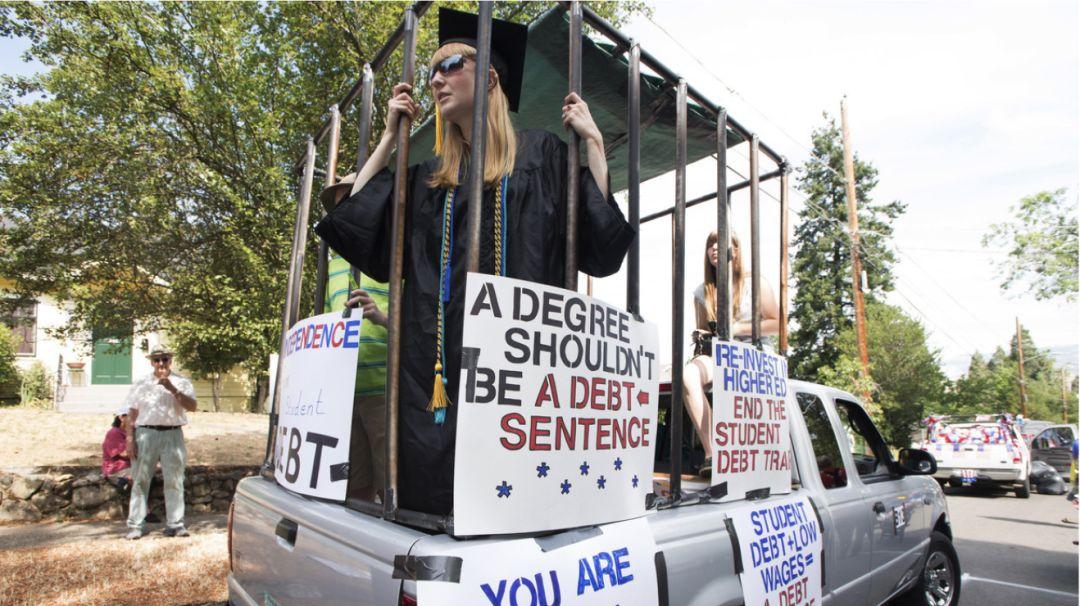### What Happens When Student Loans Are in Default: Understanding the Consequences and Solutions
#### What happens when student loans are in defaultWhen student loans are in default, it refers to a situation where the borrower has failed to make the req……
#### What happens when student loans are in default
When student loans are in default, it refers to a situation where the borrower has failed to make the required payments on their loans for an extended period, typically 270 days for federal loans. Defaulting on student loans can have serious repercussions, affecting not only the borrower's financial situation but also their credit score, employment opportunities, and overall financial health.
#### The Consequences of Defaulting on Student Loans
1. **Impact on Credit Score**
One of the immediate effects of defaulting on student loans is a significant drop in the borrower's credit score. Payment history accounts for a large portion of credit scores, and missed payments can remain on a credit report for up to seven years. A lower credit score can hinder the ability to secure other types of loans, such as mortgages or car loans, and may lead to higher interest rates.
2. **Collection Actions**
Once a loan is in default, the lender may initiate collection actions. This could involve sending the account to a collections agency, which can lead to aggressive collection tactics. Borrowers may receive phone calls, letters, and other forms of communication demanding payment. In some cases, the lender may even pursue legal action to recover the debt.
3. **Wage Garnishment**
For federal student loans, the government has the authority to garnish wages without a court order. This means that a portion of the borrower's paycheck can be withheld to repay the debt. This can significantly reduce the borrower's take-home pay and create additional financial strain.

4. **Loss of Eligibility for Future Financial Aid**
Defaulting on student loans can also affect a borrower's eligibility for future federal financial aid. This can be particularly concerning for those looking to return to school or pursue further education, as they may find themselves unable to access necessary funding.
5. **Tax Refund Seizure**
The government may seize tax refunds to apply toward the defaulted loan balance. This can be an unexpected financial blow, especially for borrowers who rely on tax refunds for budgeting or paying off other debts.
6. **Difficulty in Obtaining Employment**
Some employers conduct credit checks as part of the hiring process. A defaulted loan can be a red flag for potential employers, particularly in industries that require financial responsibility. This can lead to difficulties in securing employment, further exacerbating the borrower's financial situation.
#### Options for Borrowers in Default
While defaulting on student loans can have serious consequences, borrowers do have options to address the situation:
1. **Loan Rehabilitation**

Borrowers can enter a loan rehabilitation program, which typically involves making a series of on-time payments to bring the loan out of default. This process can help restore the borrower's credit score and improve their financial standing.
2. **Loan Consolidation**
Another option is loan consolidation, which involves combining multiple loans into a single loan with a new repayment plan. This can make payments more manageable and help borrowers avoid default in the future.
3. **Income-Driven Repayment Plans**
For federal loans, borrowers may qualify for income-driven repayment plans that adjust monthly payments based on their income and family size. This can help make payments more affordable and prevent future defaults.
4. **Seek Professional Help**
Borrowers struggling with default may benefit from consulting a financial advisor or a student loan counselor. These professionals can provide guidance on the best course of action and help borrowers navigate the complexities of student loan repayment.
In conclusion, understanding what happens when student loans are in default is crucial for borrowers. The consequences can be severe, affecting credit scores, job prospects, and overall financial well-being. However, there are options available to borrowers to regain control over their student loans and work towards a more stable financial future. Taking proactive steps can help mitigate the negative effects of default and pave the way for recovery.